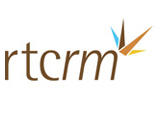Check-ins, Deals and Mobile – Oh My!
The battle has begun between Facebook and all the other check-in/deal websites and services. With the launch of Facebook Places and Facebook Deals, Facebook is clearly moving into new (and lucrative) territory. It is also raising awareness of mobile check-in services, which currently only have a niche user base. Regardless of which service is winning the PR battle today, the time is now to learn what these services mean to businesses and consumers.
Carlen Lea Lesser, VP/Director, Digital Integration & Innovation
 Key Information
Key Information Just as businesses were beginning to figure out how to leverage the growing stable of check-in/deal-oriented websites/services, Facebook has thrown its hat into the ring. Currently only around 4% of U.S. adults
10 use location-based services, and general awareness of these services is very low. Even among those who are aware of these services, there is lower awareness as to why one might want to use them.
11These websites/services initially were just ways for consumers to share places or things they liked. Taking advantage of the rising omnipresence of Web-enabled smartphones, these services encourage people to “check in” when they arrive at a location or complete an activity. For most, this is done via a platform-specific app (iPhone/Droid/BlackBerry), although some do work through the mobile Web. However, in efforts to monetize their services, location-based deals are now frequently bundled into the check-in. For example, if a consumer checks in to a location on Foursquare, he or she may see a little tab that says “Special Nearby” or “Special Here.” The consumer doesn’t have to be checking in at your location to learn of a deal there. As you can see in upper right corner of the screen capture at right, just by checking in at RTCRM when I get to work, I can learn about specials near my office. Unlike traditional coupons, location-based deals also encourage and reward consumer engagement and advocacy.
Until now, the players in the “geo-social” space were small and independent start-ups. Now Facebook has jumped into the ring, and brought its 200mm mobile users
12 with it. Whenever Facebook does anything, the mainstream press covers it in detail. So even though a few weeks ago only 4% of adults in the U.S. used location-based services, it stands to reason that the number will rise rapidly. Facebook was able to enter the market with deals that no start-up could hope to provide. On its first day of offering deals, Facebook Deals partnered with Gap to give away thousands of pairs of jeans to people who checked in at their local Gap store. This resulted in thousands of check-ins and even more PR.
13Implications and Action Items
While location-based or “geo-social” services may still be reaching a niche audience, the time is now for organizations to begin experimenting.
- Check in. Encourage your marketing team to begin trying these services themselves. Even if it’s not your thing, it’s important to have a firsthand understanding of how these services work and what they offer.
- Check out. Keep an eye not only on how your competitors are using these services, but also your comparators in other categories or industries.
- Deals or status? Learn what types of people are attracted to these services (demographics, psychographics, technographics), and what specifically they use them for. Some people might be attracted to the gaming aspect, some to the “status” aspect, and some just to the deals.
- Mobilize. Location-based services can provide a very low cost of entry (in both time and dollars) to engage in mobile marketing. Consider them a way to run pilot programs to explore this rapidly growing channel.
10 http://tiny.cc/wu8m8.
11 Based on my completely unscientific conversations with people who are constantly asking me “Why?”
12 http://tiny.cc/fs66h
13 http://tiny.cc/jlezi.